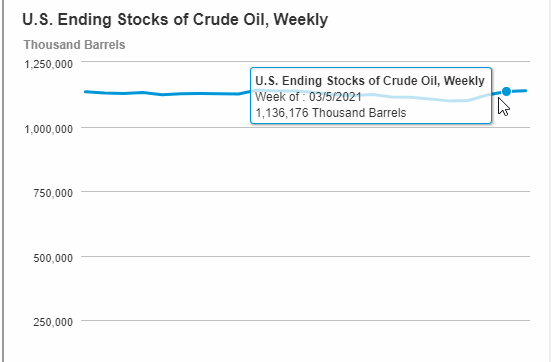The oil price
has been in decline for the last few days, losing the momentum it used to have up
until the latest OPEC+ meeting on March 4.
On some days,
the prices of both WTI and Brent were high in the early hours on Asian markets;
they, however, quickly died down, falling in line with the current trend.
The rise in
oil price during the past few weeks was attributed to the production cuts by
the OPEC+; it triggered off a rift between certain countries, which, in normal
times, used to be allies, as well; the latest not-so-diplomatic verbal exchange
between the Saudi oil minister and his Indian counterpart is a case in point.
The OPEC+
decided to hold on to its production cuts into April and Saudi Arabia decided
to extend the existing, voluntary cuts in its production by 1 million bpd into
April too.
The
cumulative impact evolved into a significant supply constraint and analysts
made their calculations based on this development; the forecast was a steady
rise in oil price.
It, however,
did not materialise in the last few days.
On the contrary,
the crude oil price went down: Both Brent and WTI lost nearly 0.2% in the early
hours on Wednesday.
As the
uncertainty looms over the price of crude oil, a familiar factor that used to
influence the price of crude oil has come to the fore - back again.
The US crude
and fuel inventories rose considerably during the week ending 12 March 2021
that could clearly account for the stagnation of the price of oil during the
past few days.
The latest
report from the EIA, the US Energy Information Administration, shows a rise in
US crude inventories by 2.4 million barrels in a week, when, by contrast, a forecast
for the same by a separate industry report was a decline by 1 million barrels.
Making the
outlook even gloomier, the stocks of gasoline and diesel rose as well defying
the expectations to the contrary.
On vaccine
front, meanwhile, the concerns raised on the potential side effects of a vaccine
are slowly resonating with regional political connotations in Europe; it comes
at a crucial time, when the vaccine drive is in full swing and the effect was
in the countries, which successfully implemented it, for all to see.
The new
lockdown fears in Italy, France, Kenya and even India will not be helpful for
any market to recover, let alone the oil markets.
With the
airline industry still on its knees, the analysts expected the increased activity
on the roads; yet, an increase in inventories clearly shows that anxieties are
palpable despite the collective successes achieved against the pandemic.







